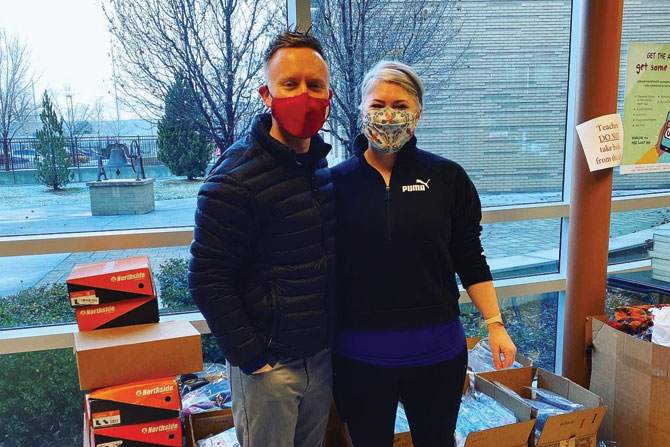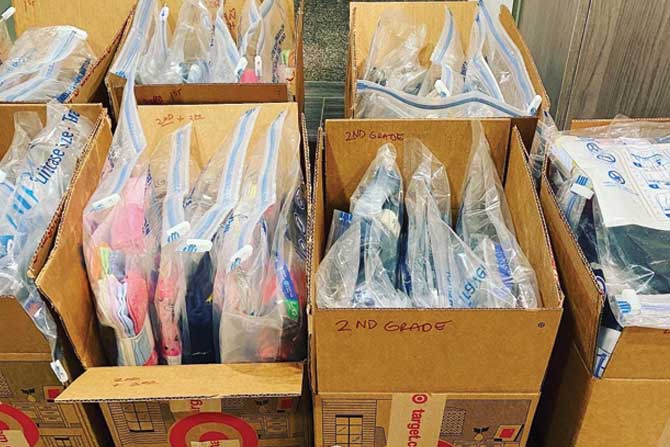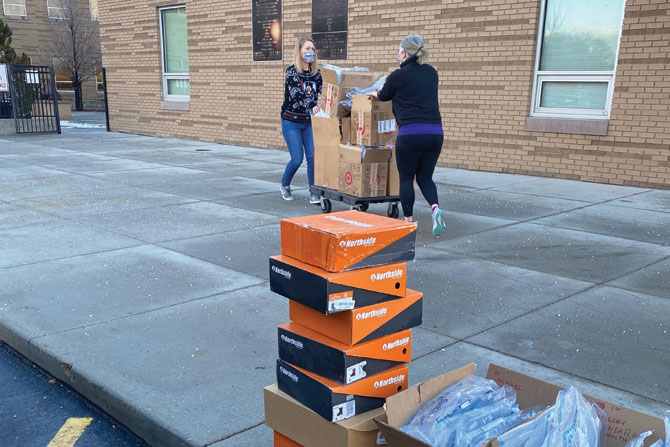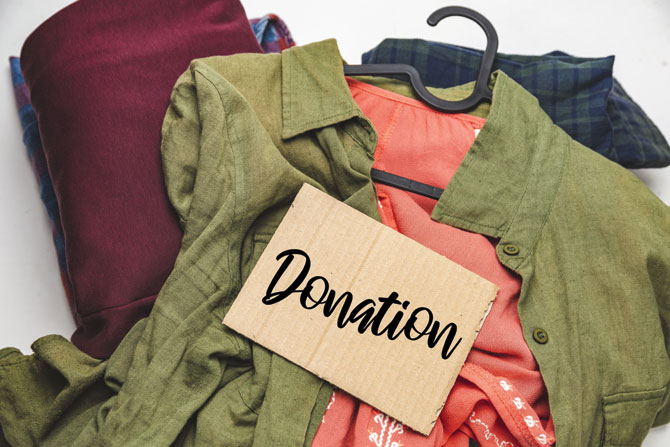A friend of mine is a teacher at an elementary school in Murray, Utah. Prior to the pandemic, we would routinely get together to walk around a nearby park and chat. One time she relayed this story to me:
She had a student in her class that missed basically every other day of school for the first month of school. When she talked to her principal about it, she found out that this student’s sibling was also missing nearly every other day. My friend decided to pay a visit to the students’ house to see what was going on.
During her visit she discovered the two brothers only had one pair of shoes between the two of them. The boys traded off going to school every other day so that one of them didn’t have to go to school barefoot. Needless to say, hearing this story was heartbreaking — no child should be faced with this scenario. My friend solved this problem by getting both boys a new pair of shoes out of her own pocket to the very loud protestations of the deeply grateful and embarrassed parents.
For the next several days and weeks, I often wondered what had happened to those students, and more importantly, what would become of them when they each outgrew their only pair of shoes. I also wondered how difficult things were for the whole family that splitting a pair of shoes to attend school every other day was the best solution.
This was lingering in the back of my mind when my husband Chad Spain (UAFP President-Elect) told me that he was applying for an AAFP Family Medicine Philanthropic (FMPC) grant again this year. He explained the parameters, and I wondered aloud if we would be able to do something to solve this shoe/absenteeism dilemma for some of the children in our community. I started poking around the internet and learned about some of the programs working to address this widespread issue in the United States.
What I learned was how many children are affected not by just lack of shoes but clean clothing. Care Counts is a program that has partnered with Whirlpool and Proctor & Gamble to provide schools across the U.S. with washers and dryers that families can use free of charge. This alone has assisted participating school districts in dramatically dropping their rates of student absenteeism.
With the knowledge that clean clothes and shoes can help students attend school regularly — which is so critical for the well-being of children — it was time to do a little more research and some math. I found that with the grant money plus a little extra, we could fairly reasonably get two pairs of pants, socks, underwear, and a $25 gift card so the family could purchase a pair of shoes for approximately 30–35 school children.



With some cold calls and a little determination, we found a school that could use our help. With the help of my teacher friend, we were connected with a school counselor at a local elementary school. We found out that they had partnered with the Assistance League in the past for a similar program that helped supply children with coats and boots. Armed with this information and a plan, Chad applied for the grant.
Fortunately, we received the grant, and on top of that, I had solicited a few family members to donate to the cause. The school provided a copy of the form they had used before to get information from parents; we made appropriate changes for our own use, and my sister, who speaks Spanish, translated the form into Spanish as well.
Once we received all of the completed forms from the school counselor, I created a spreadsheet to better organize our shopping list and kept all the original forms as a backup. Chad and I sat down with a computer and a credit card and picked out clothing for 34 children based on information gathered from parents. We had our 9-year-old niece help give advice about the basic clothing girls would like (black leggings and “jeggings”) and what the boys at her school wore (jeans). Each kid got two pairs of pants. With socks and underwear, we just picked the colors within the size groups that were most widely available to attempt to keep things as “fair” as we could possibly be. I never thought sitting down to purchase large volumes of children’s clothes would be so gratifying, but each time the delivery truck pulled up with part of our order, we were filled with joy.
We ordered giant Ziploc bags from Amazon to make sorting easier. Finally, I had to physically go into Target to get 34 $25 gift cards. And while I was there, I picked out 34 double packets of cute cloth face masks in kid sizes as well. It took about a week for everything to arrive, and then we made a date night out of sorting clothes, forms, masks, and gift cards into bags. We boxed everything up as well as donations we had received of backpacks and various sized boots. On a Tuesday morning in mid-December, we met the school counselor at the back of the school to unload all of the boxes. Everything was delivered just in time to distribute the packages to the children to take home before Christmas break.
All in all, it took a very small effort on our part, and not very much money when you consider how many families were helped. I’d like to hope for at least this semester of the school year, those children and their parents had one less thing to worry about during an already very difficult year. That contribution to our community’s health and well-being is more than worth any effort or dollar amount that was spent.
Have an Idea for an FMPC Grant?
UAFP encourages our members to consider applying for one of these grants awarded annually in the Spring. Applications are due each year in February and need to focus on one of the following three areas:
- Student and/or Resident project: Focuses on education, research, and/or humanitarian opportunities for students (high school, undergraduate, or medical students) and/or Family Medicine residents.
- Member Outreach project: Focuses on education, research, and/or humanitarian opportunities that target AAFP Family Physician members.
- Public Health project: Focuses on the health of families and communities by promoting healthy lifestyles; conducting research and/or providing education for disease and injury prevention; and/or projects that are humanitarian or service in nature that improve the health of individuals or communities.
Please reach out to UAFP with any questions at 801-736-0722.







